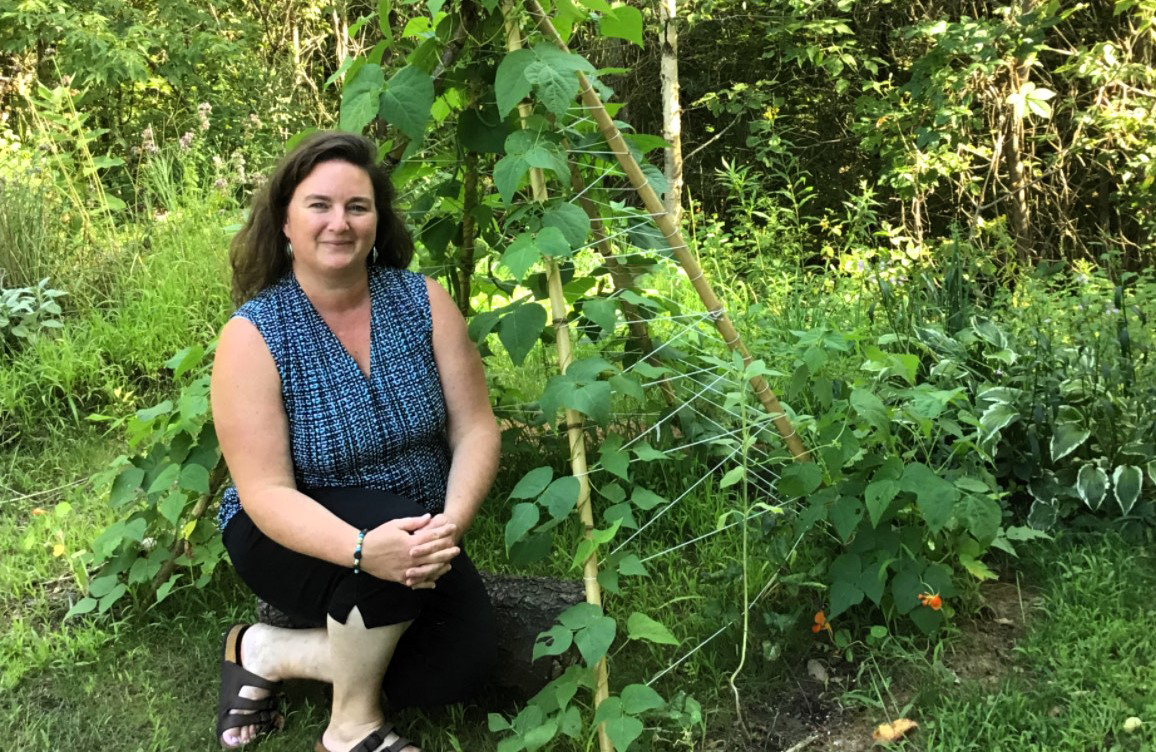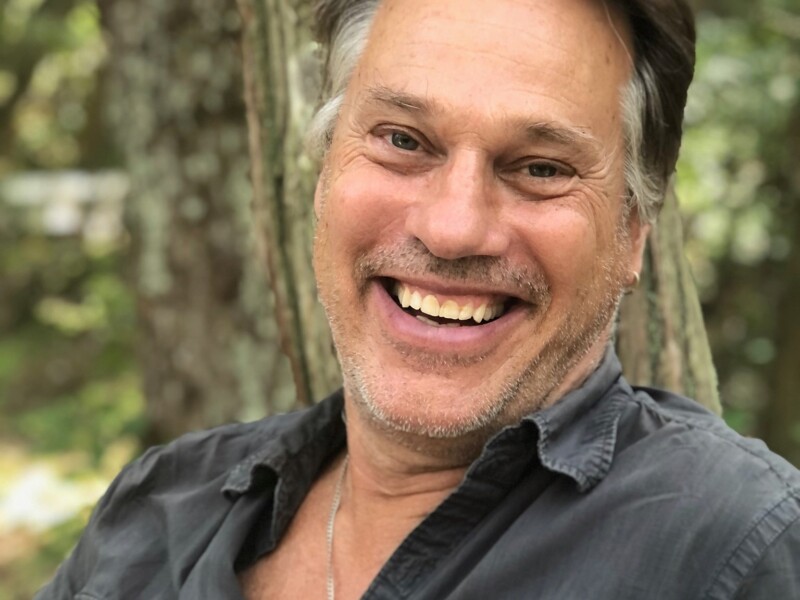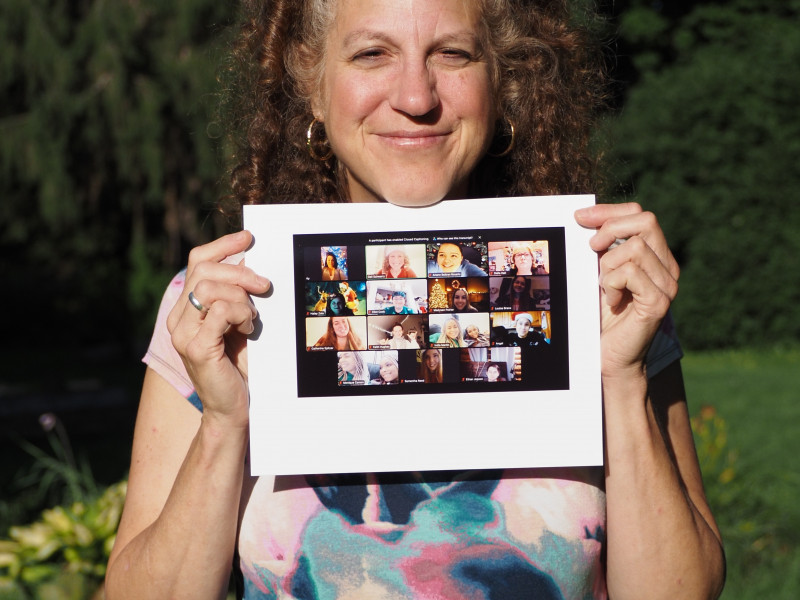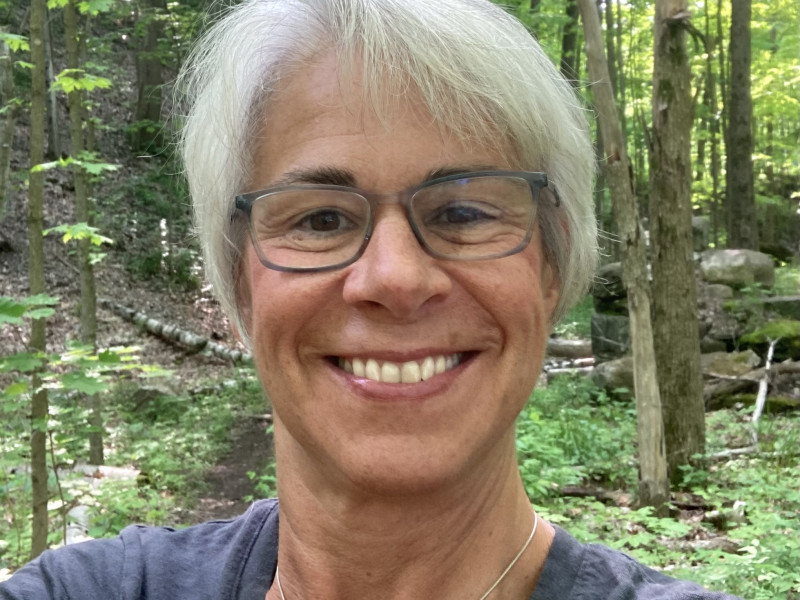
CCV proudly recognizes members of its outstanding faculty with the annual Teaching Excellence Awards. Faculty are nominated by students, staff, and faculty colleagues, and this year 65 instructors received nominations. Recipients are selected by Academic Council, which includes faculty, staff, and student representatives. This year, CCV is pleased to honor Patti Cook, April Zajko, and Sylvia Puglisi.
‘A Teacher to my Toes’
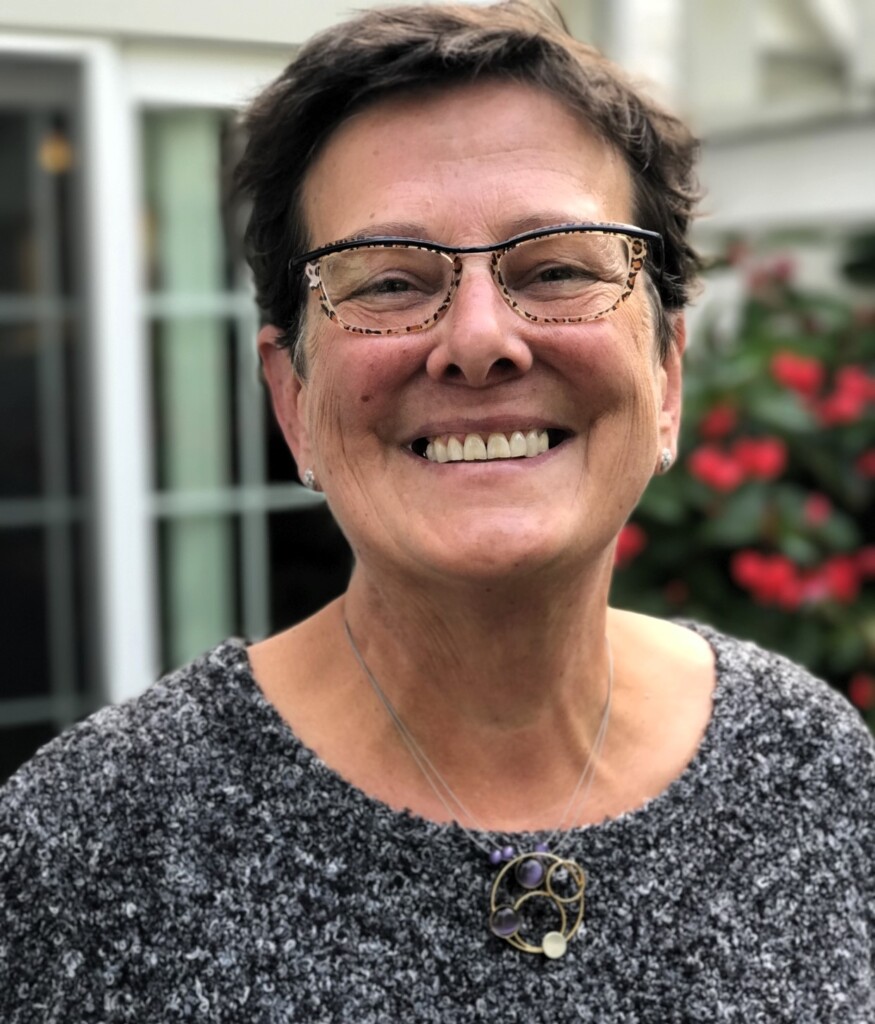
After more than four decades in higher education, Patti Cook still describes herself simply: “I’m a teacher to my toes.” From teaching in prisons to leading academic programs, her journey has been driven by a deep love of learning and a passion for helping students discover their strengths and flourish.
Patti always knew she wanted to be a college instructor and pursued many levels of education to achieve that goal. She earned a master’s degree in counseling psychology from UVM, then received her doctorate in educational leadership and policy studies a decade later. Since then, Patti has followed her love of learning through earning multiple teaching certifications, including online teaching and positive psychology, all while working in education. “One of the reasons CCV is so perfect for me is because they’re very supportive of professional development,” she said. “So I’ve almost always been taking a course of some sort.”
Over 15 years ago Patti started teaching psychology and human development at CCV, and has since honed in on teaching positive psychology each semester. “Psychology tends to study what goes wrong with people,” Patti said. “I loved positive psychology because it was a total shift. It’s the study of everything that can go right with people. I get to share with my students and really shine a light on all the things that can go right, all the things that are good about them, and how they can use their strengths and create a better life for themselves.”
Patti is able to bring together her love of learning, interest in positive psychology, and desire to help students into each class she teaches. “I’m always learning and always using that information to make my classes better, and to be right on the cutting edge of what’s happening in my field,” she said. “I have really high standards, but I really support students in meeting them. I feel like I respect them, that they can do better, that they can push themselves beyond what they think they can do. But I’m gonna have their back the whole time.”
This commitment to student success has brought Patti to where she is today, earning the Teaching Excellence Award at CCV. “I’ve wanted this my whole life. I’ve been nominated nine times,” Patti said. “I hold myself to a high standard, and I love what I do. So to have it be recognized, it’s just a dream come true. I feel very proud when I say I’m a teacher at CCV.”
A Nature-Based Educator
April Zajko is one of the many CCV faculty members who bring their expertise working in the field into the classroom. An early childhood educator by day, April uses her years of experience and knowledge to teach CCV students in early childhood education courses while also bringing a nature-based approach to teaching both children and adults.
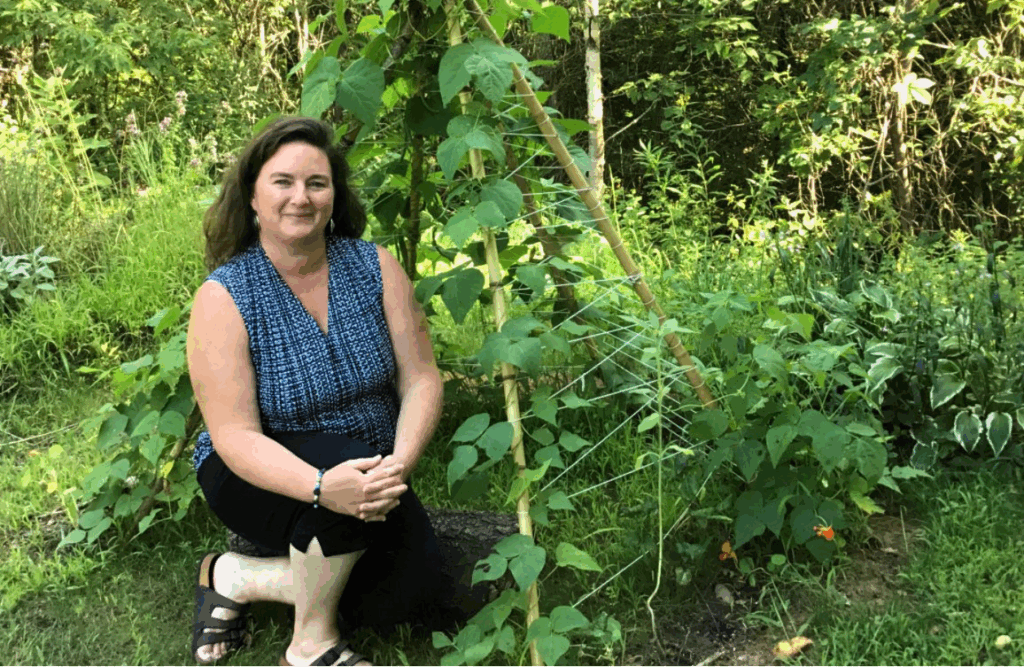
April earned a master’s degree in education from the University of Virginia and entered the workforce as a teacher in a traditional public school. When she moved to Vermont, she chose to focus on preschool-aged children. “It’s such a unique opportunity because you are really setting that foundation for them,” she said. Over the course of her career, April expanded to teaching college students at CCV and leading professional development for early childhood educators for Northern Lights. “It really has added a depth to my career that I wouldn’t have had if I was only working with young children,” she said. “I always feel like it’s an honor when parents drop off their young children to me, of being their very first teacher. And I feel that same bridge in working at CCV because often my students, this may be one of their very first college courses. There’s that parallel between those first days with brand new three and four year olds to the first college day of a middle aged person. It’s just a really neat experience.”
At CCV, April has taught a variety of early childhood education courses for 16 years, often teaching students who are already working in the field. “They’re coming to really get more of that theoretical research-based information. The power is that bridge between theory and practice to see it in real life,” she said. “I really designed my courses so my CCV students leave not just knowing what to do, but that they feel confident in how to do it.” She added, “If they’re leaving my class and they feel this commitment to doing the best that they can for children within their classrooms and also having them feel empowered, I think that is just really powerful.”
A large part of April’s work is incorporating a nature-based approach to education. A lover of the natural world and the outdoors, April has studied the positive impact nature can have on students. “Nature-based education, to me, is really about connecting to the local, like what’s right outside our back door,” she said. For younger students, this can look like taking a lesson outdoors to both increase their understanding of the natural world, and also have a more sensory experience. At CCV, she developed the course Nature-Based Approaches in Early Childhood Ed. “It just felt like a really exciting time to take all of this research that I had done and really boil it down into one course,” she said. “That’s really my favorite work is bridging that world of early childhood and nature and outdoor education and bringing those things together.”
For April, receiving the Teaching Excellence Award is about something bigger than herself. “In Vermont, we have a robust early childhood education workforce and community. Receiving this award just reaffirms that idea that this is an important profession and that it’s respected. I feel like earning this award isn’t just for me, but it’s really about the early childhood workforce,” April said. “I feel really honored and celebrating that with other early educators is going to be exciting.”
Talking Science, Teaching Wonder
As a self-proclaimed nerd with an interest in the sciences, Sylvia Puglisi has found her niche in sharing her interests through teaching at CCV. “I feel very comfortable teaching in a classroom. I feel like it’s my profession, my calling,” she said. “I like to talk. I love the topics of my interests. And it’s so fun – you get to just talk about the things that you love all the time. I really like learning. I really like teaching. I really like the process of information, organization, and discovery.”
Sylvia always knew she wanted to be a teacher, but chose to pursue her interest in science when she went to college. “I just always loved it. I like learning about the world. I have a very well-developed sense of wonder,” she said. She earned a bachelor’s degree from the California Institute of Technology in computational neuroscience and continued her education, earning master’s degrees in mathematics for teaching and psychology and pharmacology. Rather than pursue research like many of her peers, Sylvia took the knowledge she gained and chose to teach, taking the same career path as her parents.
Moving to Vermont from California, Sylvia started as an instructor at CCV seven years ago and has taught every semester since. Teaching anatomy and physiology and applied math concepts each semester, two classes that a majority of CCV degree-seeking students must take, she has had the opportunity to teach all types of students, which is a big part of what she loves about CCV. “The students are so interesting and diverse. I got to meet people of all ages, of all different walks of life coming to education for all different reasons…and that’s so rewarding and interesting and fun,” she said. “They bring a lot of information and experience to the classroom in a way that really enriches it.”
Sylvia strives to bring her love of the sciences into each class she teaches, understanding that some students may be apprehensive about the subject. “I’m very positive and upbeat and high energy, I move around a lot physically. I want students to feel like they’re exploring and discovering,” she said. “I often think of it as trying to create puzzles that students are exploring their way through that lead them in the right direction.” When students complete her classes, she has two main goals for them: “For the science classes, my goal is always to help them see that the world is wondrous and explainable…I hope that students leave my classes in applied math concepts feeling like they found something interesting or useful, or if not that they just found in themselves capacities that they didn’t know they had.”
For Sylvia, receiving the Teaching Excellence Award has been a welcome confirmation that she’s doing something right. “It means a lot to me. I try not to think about awards or like external things…I try to just do what I do and to feel like I’m doing it as well as I can and do better every time,” she said. “CCV is so supportive, so wonderful. The counselors at CCV are so cool and affirmative, the students are so good at giving me feedback and helpful, so in theory, I’ve gotten all kinds of help to make me feel good and like I’m improving constantly. It means a lot to me, though, to have this.”

